It’s Tuesday, which means it’s time for a new batch of book releases! Here are a few of the books out today you should add to your TBR. This is a very small percentage of the new releases this week, as well as a few others you may have missed from recent weeks. Make sure to stick around until the end for some more Book Riot resources for keeping up with new books. The book descriptions listed are the publisher’s, unless otherwise noted.
Moon Witch, Spider King by Marlon James
In Black Leopard, Red Wolf, Sogolon the Moon Witch proved a worthy adversary to Tracker as they clashed across a mythical African landscape in search of a mysterious boy who disappeared. In Moon Witch, Spider King, Sogolon takes center stage and gives her own account of what happened to the boy, and how she plotted and fought, triumphed and failed as she looked for him. It’s also the story of a century-long feud—seen through the eyes of a 177-year-old witch—that Sogolon had with the Aesi, chancellor to the king. It is said that Aesi works so closely with the king that together they are like the eight limbs of one spider. Aesi’s power is considerable—and deadly. It takes brains and courage to challenge him, which Sogolon does for reasons of her own.
Both a brilliant narrative device—seeing the story told in Black Leopard, Red Wolf from the perspective of an adversary and a woman—as well as a fascinating battle between different versions of empire, Moon Witch, Spider King delves into Sogolon’s world as she fights to tell her own story. Part adventure tale, part chronicle of an indomitable woman who bows to no man, it is a fascinating novel that explores power, personality, and the places where they overlap.
Reasons to read it: Naturally, you should read this if you’ve read the first in the series and loved it. The second in James’s Dark Star Trilogy is unique in that it doesn’t quite advance the plot. Instead, it tells much of the same story as the first book through the lens of a character who was previously an adversary. Many of the same elements that brought comparisons to the works of George R.R. Martin are at play here, with the added bonus of showing the experiences of a female protagonist in this richly imagined and complex African mythology–based world that James has created.
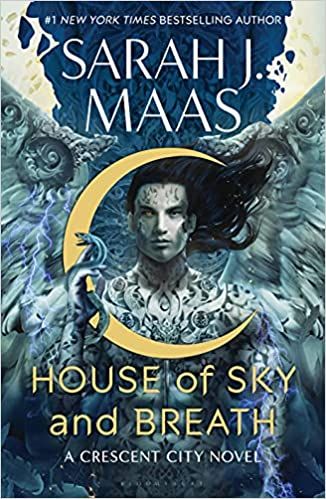
House of Sky and Breath by Sarah J. Maas
Bryce Quinlan and Hunt Athalar are trying to get back to normal — they may have saved Crescent City, but with so much upheaval in their lives lately, they mostly want a chance to relax. Slow down. Figure out what the future holds.
The Asteri have kept their word so far, leaving Bryce and Hunt alone. But with the rebels chipping away at the Asteri’s power, the threat the rulers pose is growing. As Bryce, Hunt, and their friends get pulled into the rebels’ plans, the choice becomes clear: stay silent while others are oppressed, or fight for what’s right. And they’ve never been very good at staying silent.
In this sexy, action-packed sequel to the #1 bestseller House of Earth and Blood, Sarah J. Maas weaves a captivating story of a world about to explode-and the people who will do anything to save it.
Reasons to read it: Re-enter the world of the Crescent City series with Maas’s fine worldbuilding and gripping romance. We pick back up with half-Fae Bryce after having investigated her best friend’s murder in the first book. As in the first installment, this book pays great attention to its female characters and has engaging plot twists that’ll keep you hooked throughout. Fans of Maas’s young adult offerings will appreciate The House of Sky and Breath for retaining all the best components of a Maas fantasy, made grittier and darker. The author describes this book as “Now with 500% more sex!”
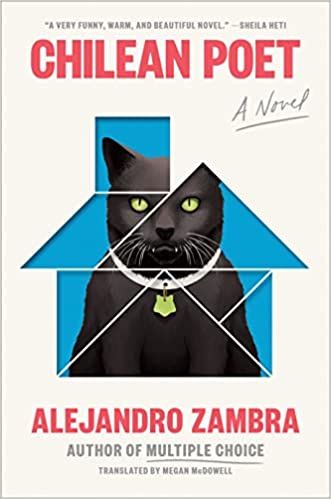
Chilean Poet by Alejandro Zambra
After a chance encounter at a Santiago nightclub, aspiring poet Gonzalo reunites with his first love, Carla. Though their desire for each other is still intact, much has changed: among other things, Carla now has a six-year-old son, Vicente. Soon the three form a happy sort-of family—a stepfamily, though no such word exists in their language.
Eventually, their ambitions pull the lovers in different directions—in Gonzalo’s case, all the way to New York. Though Gonzalo takes his books when he goes, still, Vicente inherits his ex-stepfather’s love of poetry. When, at eighteen, Vicente meets Pru, an American journalist literally and figuratively lost in Santiago, he encourages her to write about Chilean poets—not the famous, dead kind, your Nerudas or Mistrals or Bolaños, but rather the living, striving, everyday ones. Pru’s research leads her into this eccentric community—another kind of family, dysfunctional but ultimately loving. Will it also lead Vicente and Gonzalo back to each other?
In Chilean Poet, Alejandro Zambra chronicles with enormous tenderness and insight the small moments—sexy, absurd, painful, sweet, profound—that make up our personal histories. Exploring how we choose our families and how we betray them, and what it means to be a man in relationships—a partner, father, stepfather, teacher, lover, writer, and friend—it is a bold and brilliant new work by one of the most important writers of our time.
Reasons to read it: Sheila Heti, author of Motherhood, called this novel “A very funny, warm, and beautiful novel.” It’s literary fiction that could possibly be auto fiction, that reflects on the pressures of leaving your mark as a writer. We see Chilean life after a dictatorship, and the very interesting dynamics of a blended family in such a context.
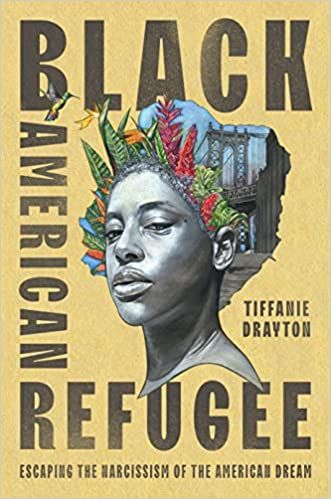
Black American Refugee by Tiffanie Drayton
After following her mother to the US at a young age to pursue economic opportunities, one woman must come to terms with the ways in which systematic racism and resultant trauma keep the American Dream inaccessible to Black people.
In the early ’90s, young Tiffanie Drayton and her siblings left Trinidad and Tobago to join their mother in New Jersey, where she’d been making her way as a domestic worker, eager to give her children a shot at the American Dream. At first, life in the US was idyllic. But chasing good school districts with affordable housing left Tiffanie and her family constantly uprooted–moving from Texas to Florida then back to New Jersey. As Tiffanie came of age in the suburbs, she began to ask questions about the binary Black and white American world. Why were the Black neighborhoods she lived in crime-ridden, and the multicultural ones safe? Why were there so few Black students in advanced classes at school, if there were any advanced classes at all? Why was it so hard for Black families to achieve stability? Why were Black girls treated as something other than worthy?
Ultimately, exhausted by the pursuit of a better life in America, twenty-year old Tiffanie returns to Tobago. She is suddenly able to enjoy the simple freedom of being Black without fear, and imagines a different future for her own children. But then COVID-19 and widely publicized instances of police brutality bring America front and center again. This time, as an outsider supported by a new community, Tiffanie grieves and rages for Black Americans in a way she couldn’t when she was one.
An expansion of her New York Times piece of the same name, Black American Refugee examines in depth the intersection of her personal experiences and the broader culture and historical ramifications of American racism and global white supremacy. Through thoughtful introspection and candidness, Tiffanie unravels the complex workings of the people in her life, including herself, centering Black womanhood, and illuminating the toll a lifetime of racism can take. Must Black people search beyond the shores of the land of the free to realize emancipation? Or will the voices that propel America’s new reckoning welcome all dreamers and dreams to this land?
Reasons to read it: This is another great entry into the field of books that have been questioning the Black and white binary in America. It elevates the conversation in new ways by taking it outside America, allowing for a more fair comparison of living conditions experienced by Black people. Drayton makes the point that “from an ocean away, I had fuller access to my heartbreak and rage in a way I never could when those powerful feelings had to coexist with my drive to survive within the system.” This raises good questions concerning Black and white people who have never left the U.S. and been able to evaluate their views and feelings regarding race. How does that fact further drive the state of race relations in the U.S.?
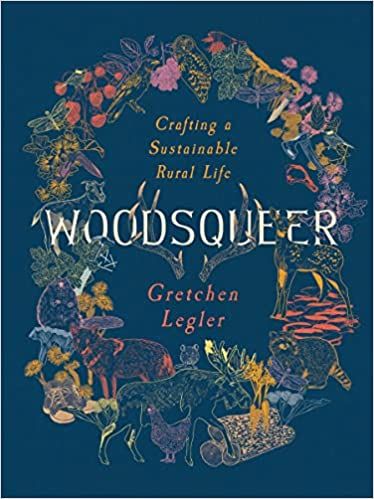
Woodsqueer: Crafting a Sustainable Rural Life by Gretchen Legler
“Woodsqueer” is sometimes used to describe the mindset of a person who has taken to the wild for an extended period of time. Gretchen Legler is no stranger to life away from the rapid-fire pace of the twenty-first century, which can often lead to a kind of stir-craziness. Woodsqueer chronicles her experiences intentionally focusing on not just making a living but making a life—in this case, an agrarian one more in tune with the earth on eighty acres in backwoods Maine.
Building a home with her partner, Ruth, on their farm means learning to live with solitude, endless trees, and the wild animals the couple come to welcome as family. Whether trying to outsmart their goats, calculating how much firewood they need for the winter, or bartering with neighbors for goods and services, they hone life skills brought with them (carpentry, tracking and hunting wild game) and other skills they learn along the way (animal husbandry, vegetable gardening, woodcutting).
Legler’s story is at times humbling and grueling, but it is also amusing. An homage to agrarian American life echoing the back-to-the-land movement popularized in the mid-twentieth century, Woodsqueer reminds us of the benefits of living close to the land. Legler unapologetically considers what we have lost in America, in less than a century—individually and collectively—as a result of our urban, mass-produced, technology-driven lifestyles.
Illustrated with rustic pen-and-ink illustrations, Woodsqueer shows the value of a solitary sojourn and both the pathway to and possibilities for making a sustainable, meaningful life on the land. The result, for Legler and her partner, is an evolution of their humanity as they become more physically, emotionally, and even spiritually connected to their land and each other in a complex ecosystem ruled by the changing seasons.
Reasons to read it: This is part memoir and part a reflection on nature, humans’ place in it, and what separates us from it. Legler explores the wilderness of Maine and Alaska, detailing how a lack of human influence can show in different ways, many of which are beneficial. She parallels her talk of nature with discussions on things like growing up in an abusive household, her mother’s alcoholism, and an affair she had.
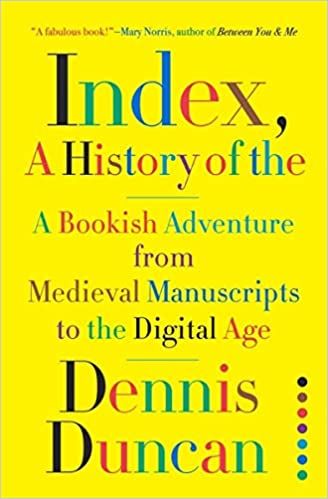
Index, A History of the: A Bookish Adventure from Medieval Manuscripts to the Digital Age by Dennis Duncan
Most of us give little thought to the back of the book ― it’s just where you go to look things up. But as Dennis Duncan reveals in this delightful and witty history, hiding in plain sight is an unlikely realm of ambition and obsession, sparring and politicking, pleasure and play. Here, for the first time, is the secret world of the index: an unsung but extraordinary everyday tool, with an illustrious but little-known past.
Charting its curious path from the monasteries and universities of thirteenth-century Europe to Silicon Valley in the twenty-first, Duncan uncovers how it has saved heretics from the stake, kept politicians from high office, and made us all into the readers we are today. We follow it through German print shops and Enlightenment coffee houses, novelists’ living rooms and university laboratories, encountering emperors and popes, philosophers and prime ministers, poets, librarians and―of course―indexers along the way. Revealing its vast role in our evolving literary and intellectual culture, Duncan shows that, for all our anxieties about the Age of Search, we are all index-rakers at heart―and we have been for eight hundred years.
Reasons to read it: This is a decidedly fun history of the index in western civilization. English Professor Dennis Duncan’s enthusiasm for the subject matter shines through the many witticisms and illustrations as he shows how something so seemingly small has been so vital to western literature.
Other Book Riot New Releases Resources
- All the Books, our weekly new releases podcast, where Liberty and a cast of co-hosts talk about eight books out that week that we’ve read and loved.
- The New Books Newsletter, where we send you an email of the books out this week that are getting buzz.
- Finally, if you want the real inside scoop on new releases, you have to check out Book Riot Insiders’ New Releases Index! That’s where I find 90% of new releases, and you can filter by trending books, Rioters’ picks, and even LGBTQ new releases!











